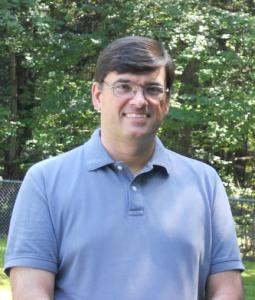This is the first interview (in a series of five) of selected speakers for AIChE's upcoming Northeast Regional Conference at the Chem Show in November. I'm Michelle Bryner (MB), one of the newest editors of CEP. You can learn a bit more about me here. I was excited to be able to interview Kevin Joback (KJ), president at Molecular Knowledge Systems, about his upcoming course on process and product development. MB: What do you mean by "chemical product design and engineering," and how does this way of developing new products differ from "experimentation"?

KJ: Chemical product design is the process of creating chemicals and formulations that possess the specific properties desired by customers. Like all design paradigms, chemical product design takes advantage of the relationship between form (molecular structure or mixture composition) and function (chemical and physical properties). Understanding how to construct the correct form to achieve the desired function is the essence of design. Experimentation is an essential tool for evaluating design decisions. However, it is typically too expensive and time consuming to base a product's design solely on a "generate and test" experimental approach.
MB:What challenges do chemical engineers face in developing new chemical products? How does the product development method discussed in your course address these challenges? KJ: Although there are many technical challenges involved in developing a new chemical product -- quantifying customer needs, understanding multiphase mixtures, identifying formulation components -- the main challenge for most chemical engineers is to learn to use their accumulated knowledge of physical chemistry, thermodynamics, fluid mechanics, and heat transfer in a new way. In our course we use numerous examples to show chemical engineers how to use this knowledge to design new chemical products. MB: Will you give a real-world example of a situation where a chemical engineer would need skills gained from your course? KJ: We are currently working on a project in which our customer asked us to design a new windshield washer fluid for automobiles. Their overall goal was to have a fluid that was better for the environment yet still maintain performance and material compatibility. We followed the procedures taught in this course and developed key, quantitative constraints on freezing point, vapor pressure, flash point, and liquid density. We then used some of the methods taught in the course to computationally generate and test candidate fluids. The cost and availability of these fluids will be compiled and the most promising candidates will be selected for experimental testing.

MB: What's timely about the topic? Why is it important for chemical engineers to learn about chemical product design in today's chemical processing environment? KJ: More and more chemical engineers are working in companies that sell specialty chemical products. These companies manufacture fragrances, flavors, adhesives, coatings, plastics, and many other chemicals that are purchased by customers because of their physical properties. It is critical that chemical engineers learn how they can contribute to the development and improvement of these kinds of products. MB: Is there anything new in the course that would be of interest to those who took your course in 2009? KJ: We are planning to use some software tools in the course this year that will significantly increase the number of chemical product design examples we can cover. MB: You are also teaching a course on chemical properties estimation. In general, how is physical property estimation used in developing new products and processes? KJ: Chemical engineers use physical property estimation to quickly and inexpensively predict the values they need to computationally evaluate the efficacy of new products and new processes. In the pursuit of better processes and products, chemical engineers must continually evaluate new processing conditions, new formulations, and new chemicals structures. The physical property values essential to these evaluations very often are not known. Limitations on time and funds, especially during the early stages of development, often prohibit experimental determination of these values. This is where physical property estimation techniques can help give chemical engineers the values they need. Engineers will learn the types of estimation techniques, typical accuracies and limitations, how to use a variety of estimation techniques and how to choose between estimation models. See the complete program for AIChE's Northeast Regional Conference at the Chem Show. Register to attend
Related articles
- ChEnected's Guide to Upcoming ChemE, Bio, and Energy Events (chenected.aiche.org)


